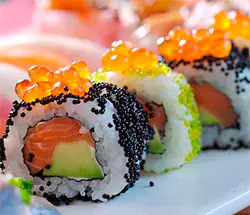People who decide to take up sports such as fitness or bodybuilding should clearly understand that they can only get an athletic body if they have high-quality, planned training and proper nutrition. As for training, professional trainers or (if this is expensive for you) training videos of famous bodybuilders, as well as articles from authoritative publications on relevant topics will help you here.
Now let's move on to nutrition. Of course, if your wallet allows, you can contact a nutritionist who, based on the test results, can clearly describe what you can eat and what you will have to give up. Otherwise, adhere to the basic rules of proper nutrition, and also pay attention to the composition and properties of the products you eat (many books and articles are devoted to this).
What is proper nutrition? Undoubtedly, this is the exclusion of fast food from the diet (by which we mean fast food restaurants, as well as chips, crackers and other useless products) and reducing the amount of fats and carbohydrates consumed. By the way, carbohydrates are divided into two parts - simple and complex. Simple carbohydrates are, in other words, sugar and white bread, buns and other flour products; they should be excluded from the diet (or minimized). Complex carbohydrates are cereals, bananas and other foods rich in nutrients, which, as you understand, can and should be eaten (ideal for breakfast).
To eat or not to eat - that is the question...
Japanese cuisine is highly valued among athletes: sushi, miso soups, hot dishes, snacks and other delicacies, which include rice, vegetables, seafood, fish, etc. Let's try to figure out why this is happening: why has this product gained such incredible popularity? What are the benefits of sushi? What ingredients do we need in sushi? And in general, the most important question for us is: is it good for a bodybuilder, powerlifter or fitness athlete to eat sushi?
Undoubtedly, in Japanese cuisine, rice is everything (in Japan it is eaten as a separate dish and as a side dish for chicken and fish). Rice – this is one of those products (cereals) in which we find a large amount of complex carbohydrates that charge our body with energy.
In one hundred grams of rice: carbohydrates – 78 grams; proteins – 8.9 grams; fats – 0.5 grams; calories – 370.
Now let's take a closer look at the composition of rice:
- Water - 14 grams
- Mono and disaccharides – 0.9 grams
- Fiber - 9 grams
- Starch – 50.2 grams
- Pectin - 1 gram
- Ash – 3.9 grams
Content of vitamins and chemical elements in rice.
B vitamins: B1 – 0.34 milligrams; B2 – 0.08 milligrams; B9 – 35 micrograms. Vitamin E – 1 milligram. Vitamin PP – 3.7 milligrams.
Iron – 2090, iodine – 2.03 micrograms, potassium – 314 milligrams, calcium – 40 milligrams, cobalt – 6.8 micrograms, magnesium – 3630 micrograms, copper – 560 micrograms, molybdenum – 26.7 micrograms, sodium – 29 milligrams, phosphorus – 328 milligrams, fluorine – 78 micrograms, zinc – 1800 micrograms.
In second place in importance in Japanese cuisine are seafood and fish. Despite the fact that some species of these animal representatives contain a large amount of fat, it is absolutely harmless, because. its melting point is equal to the temperature of the human body. As a result, the absorption of fish oil by the body occurs much faster than fat of animal origin. Fish oil can lower cholesterol levels and also supply the body with vitamin groups such as A, B, E and D. Thanks to this composition, the meat of marine animals will help minimize the likelihood of heart attack and stroke.
I think now you have well understood the benefits of sushi, and be sure to include this, not only healthy, but also incredibly tasty delicacy in your menu. As you can see, a bodybuilder’s food may not necessarily be strictly lean and tasteless - with the right approach, it is quite possible to get pleasure from eating your diet...
At the end of our article, I would like to wish everyone health and significant sporting victories!
Post Views: 295


